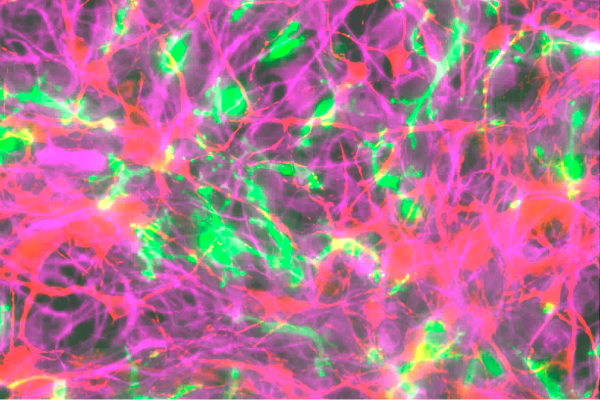At Fujifilm Drug Discovery Services, we specialize in establishing innovative translational in vitro disease models, focusing on Alzheimer's Disease and Parkinson's Disease, among others. Our ALS model employs chronic oxidative stress-mediated neuronal damage in iPSC-derived iCell® Motor Neurons and links clinical results with targeting ferroptosis and cholesterol biosynthesis, both of which are increasingly recognized for their involvement in ALS development.
Our method of introducing antioxidant deficiency leads to oxidative stress in iCell® Motor Neurons, which results in neurodegeneration. This process is mitigated by Edaravone, a clinically approved ALS therapeutic drug.
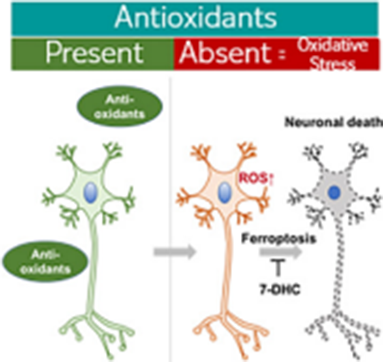

Ferroptosis inhibitors effectively prevented neuronal damage caused by gradual oxidative stress, whereas inhibitors of apoptosis or necroptosis did not exhibit similar neuroprotective benefits.
Apoptosis inhibition
Necroptosis inhibition
Ferroptosis inhibition
Distal cholesterol biosynthesis inhibitor AY 9944 inhibits neurodegeneration in the chronic oxidative stress model, possibly by leading to an accumulation of 7-DHC, which is a precursor of cholesterol.
Compound screen
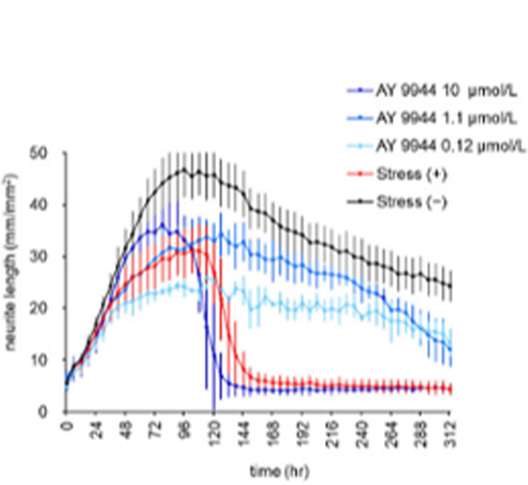
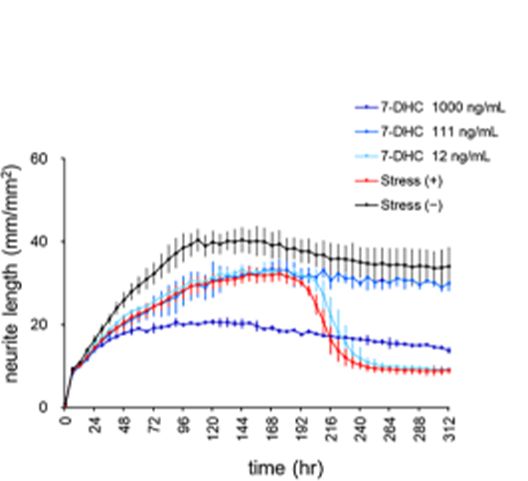
Cholesterol Biosynthesis
Hayato Kobayashi, Hitoshi Suzuki-Masuyama, Hirokazu Tanabe, Hiroshi Kato, and Setsu Endoh-Yamagami
Ferroptosis-dependent neuronal damage induced by oxidative stress in iPSC-motor neurons as ALS model, 09 July 2024, PREPRINT (Version 1) available at Research Square
We utilize human iPSC-derived neuronal and glial cells for CNS drug discovery and development, focusing on neurodegeneration and neuroinflammation, among other models. Our proprietary cell aging and co-culture technologies enable customized HTS pharmacological assay services tailored to your needs.
Advanced model for detection of neuroprotective compounds utilizing iPSC-neurons and aged iPSC-astrocytes.
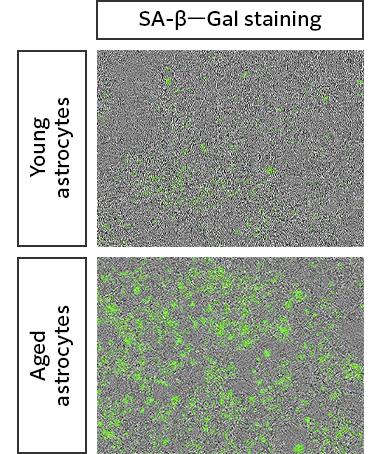
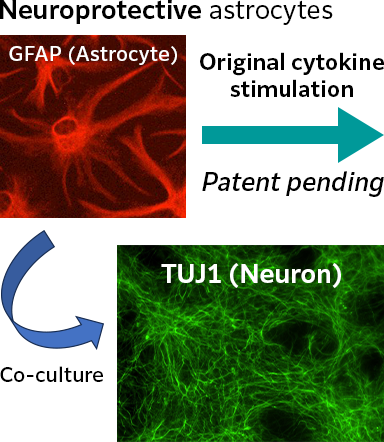
iCell neuronal cell types
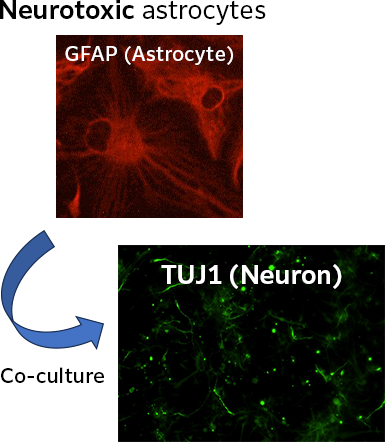
iCell neuronal cell types
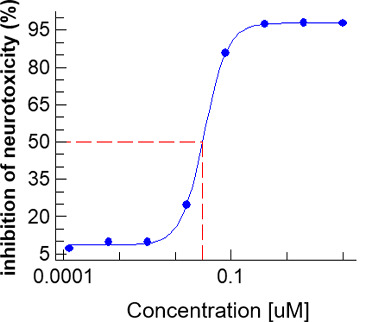
Inhibition of astrocyte-mediated neurotoxicity
with Complex Tri-culture Systems of iPSC-Derived Microglia, Astrocytes, and Neuron
